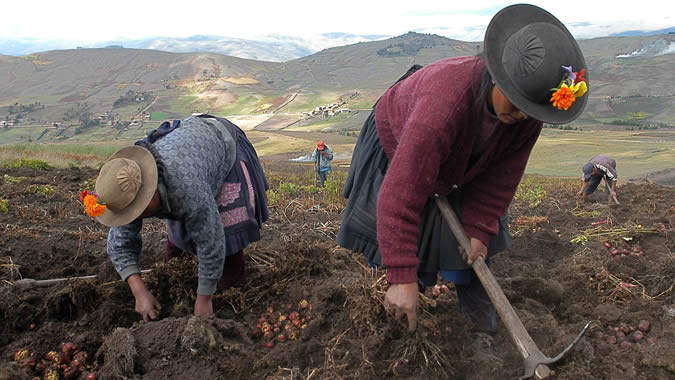Financial Inclusion of Small Rural Producers is a Key Strategy for Sustainable Rural Development with Equality: ECLAC
Work area(s)
A new publication by the UN regional organization reveals the vast inequalities that characterize the financial inclusion of small producers in rural areas.

Progressive structural change in rural areas requires innovative strategies and tools for its implementation, together with greater capacity for coordination among multiple actors and instruments, where the public sector is strategically placed to serve as a catalyst, according to a new publication by the Economic Commission for Latin America and the Caribbean (ECLAC).
The Financial inclusion of small rural producers reveals the vast inequalities existing in rural areas where, according to the latest estimates, poverty and indigence rates practically double those of urban areas.
This means that, despite making up less than 20% of the region’s total population, rural areas concentrate one third of poor people and nearly half of all indigent persons, the document affirms.
The inequalities between urban and rural settings are also evident in other dimensions of well-being, such as health, education, labor market insertion and access to social security, it adds.
In this context, ECLAC has banked on transforming the productive structure toward knowledge-intensive activities and productive processes that are linked to dynamic markets, so they may stimulate economic activity and job creation, and that favor environmental sustainability as the path and public policy as the instrument.
The publication indicates that a fundamental component of this progressive structural change is the inclusive transformation of rural areas, which enhances the productivity of primary activities, boosting the capacities of small rural producers to generate marketable surpluses and access to markets.
“Progressive structural change in rural areas requires innovative strategies and tools for its implementation, together with greater capacity for coordination among multiple actors and instruments, where the public sector is strategically placed to serve as a catalyst,” the document states.
The book Financial inclusion of small rural producers, edited by ECLAC’s subregional headquarters in Mexico, seeks to strengthen the analysis and formulation of public policies so that they may foster a diverse ecosystem of providers of commercially viable financial services and increase Latin American small rural producers’ access to a broad range of such services.
To that end, best practices in terms of public policy are identified, arising from the comparison of five countries (Costa Rica, Dominican Republic, El Salvador, Honduras and Mexico) in different phases of the process of formulating and implementing comprehensive financial inclusion strategies.
Related content
Subregional headquarter(s) and office(s)
Type
Country(ies)
- Latin America and the Caribbean
Related link(s)
Contact
Public Information Unit
- prensa@cepal.org
- (56 2) 2210 2040